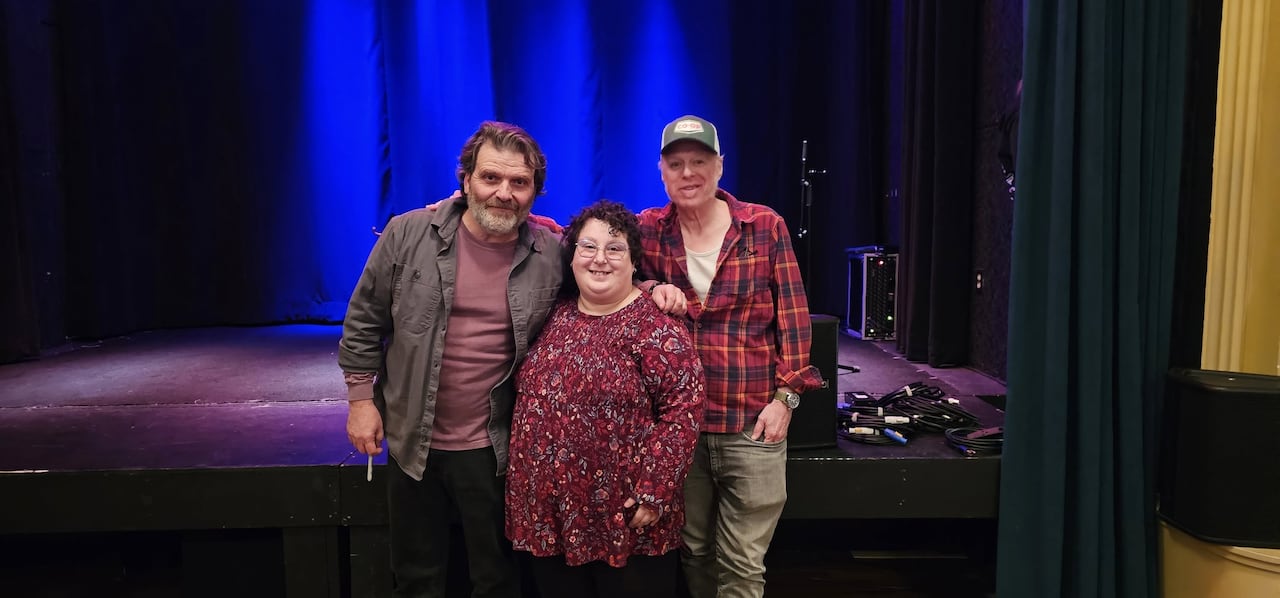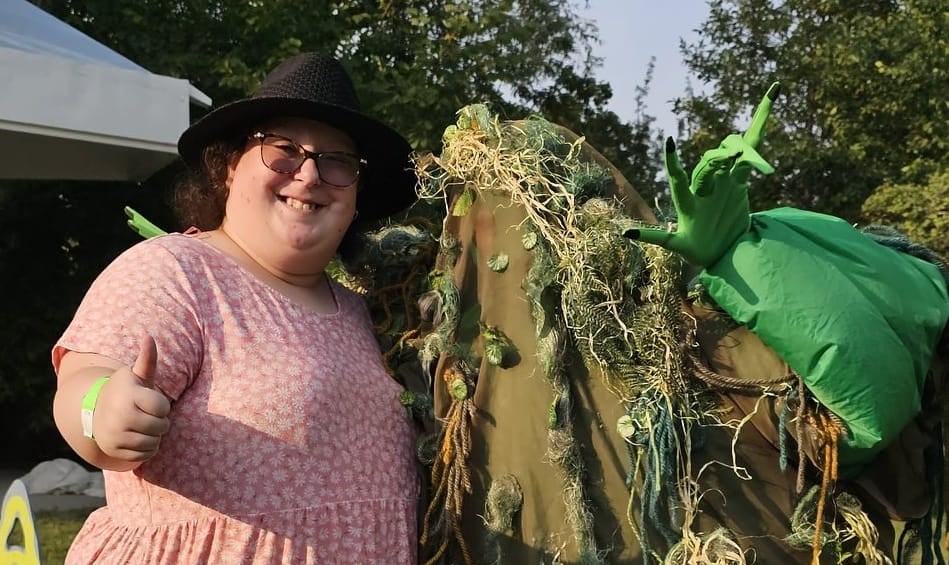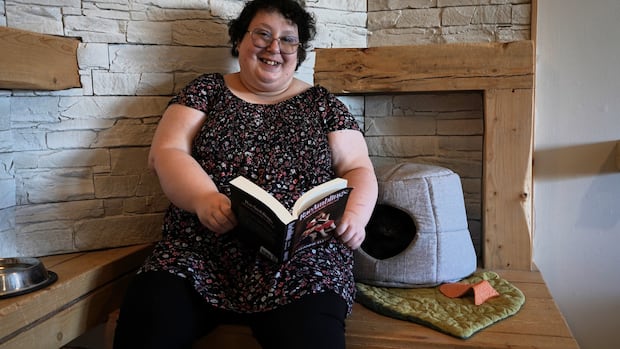Listen to this article
Estimated 5 minutes
The audio version of this article is generated by text-to-speech, a technology based on artificial intelligence.
This First Person article is the experience of RaeAnne Ellert, who lives in Regina. For more information about CBC’s First Person stories, please see the FAQ.
I was lying on my bed with my laptop one evening when a new friend request popped up on Skype. I didn’t know who it was, but I accepted out of curiosity and a love of meeting new people.
Let’s call this stranger Mark. He immediately sent me a message and we started chatting about life.
Maybe this unsolicited friend request should have rung an alarm bell in my mind.
When I was a kid, my mom and dad had rules around chat rooms, warning me about the dangers of talking to strangers. I did listen for the first little while, but when I was 13, I started sending emails to musicians, their partners and their management. I loved it when they responded, particularly since it was a struggle to connect with my peers in the real world.
What you should know about me is that I was born with a rare genetic mutation — so rare it doesn’t have a name and is only known as duplication 10p12.33p11.23.
My disability makes it hard for me to multitask and it takes me longer to do things. I have a short stature, poor dexterity and get overwhelmed easily. Like many neurodivergent kids, I was perceived as different, and I had a hard time making friends. I loved listening to tunes, but my peers said my taste was “old people music,” which left me feeling excluded.

At the time Mark sent me that friend request, I was in my 20s and living in a small town and had become socially isolated. My relationships with the musicians I’d corresponded with over the internet were a lifeline at that point. A musician named John from Toronto turned out to be a friend I really needed.
When I told John about the friend request on Skype, John immediately got back to me saying there were warning signs the stranger was a scammer and to block him right away.
“But he never asked for money,” I wrote.
Mark and I had only spoken for an hour at that point.
“That’s how they work. They will be very friendly to you, then ask you for money,” John said.
Trusting John, I promptly blocked the stranger and kept the lesson to myself. I was confused and embarrassed, but I was grateful that John had my best interests at heart.
I couldn’t see the irony in the moment, in the fact that like a scammer, I myself had spent years messaging people I didn’t know.
In the depths of my isolation and depression, at one point I pushed things too far, continuing to send messages to a musician even though he’d told me to stop. I caused irreparable damage before realizing how badly I’d messed up and backing off. I learned a lot about grace and forgiveness through that situation.

When I hear stories about scammers, I wonder how someone could fall for them. Then I remember how I might have been easy prey for a scammer myself. I live on $1,500 a month in provincial and federal assistance. Desperation can do some wild things to a person. Just like loneliness can.
But I found a way through.
My support workers had been encouraging me to get out more, and I started travelling to Regina to attend music festivals and shows. During the COVID-19 pandemic, I moved and made the city my home.
My world opened up, being able to see live music and my favourite local bands and musicians play. I met other writers as well as others who were neurodivergent like me and even wrote a book about growing up with a disability.
While attending a concert last March, I looked around and saw so many familiar faces — people I’d met over the years since moving to Regina. As the music played, I noticed everyone enjoying it together. At that moment, I felt like I truly belonged.
I also still keep in touch with John. Although we haven’t met in person yet, I still hold out hope that we will one day. Until then, I’ll keep listening to his music. I almost lost faith in people several times in my life, but John was among those that taught me genuine connections are out there — you just have to work to find them.
Scammers look for vulnerability, but so do good people; the difference is that the good ones give, not take.
I’ve learned through these experiences to stay cautious, stay kind, and most importantly, stay hopeful.
Do you have a compelling personal story that can bring understanding or help others? We want to hear from you. Email [email protected] to learn more.







